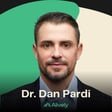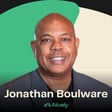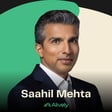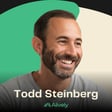
Change Your Brain And Your Life with Anne-Sophie Fluri - E41
What if you could redesign your own brain? What if you had the power to rewire neural pathways, strengthen connections, and deliberately shape your thought patterns?
In this episode we explore how we can actually change our brain structure and function. By engaging in specific activities, adopting new habits, or deliberately practicing certain thought patterns, we essentially become architects of our own minds. Tune in to learn more about how to foster mental resilience, be more present and create long-lasting social connections, all in the name of a happier, healthier and thriving brain!
Anne-Sophie Fluri is a neuroscientist, mental performance expert and workshop facilitator. She is the founder of the REWIRE program, with a career focused on improving focus, resilience and performance. Anne-Sophie shares her expertise through workshops on mental resilience, blending scientific insights with practical applications to empower individuals in improving their mental well-being. From conducting pioneering studies on psychedelics to transition into mental health technology, she has been a key player in leading mental wellness apps, focusing on mindfulness, mental fitness, and sleep.
“Everything that I talk about very much goes away from these protocols and more into understanding yourself.” - Anne-Sophie Fluri
In this episode you will learn:
- How Anne-Sophie's journey into psychology and neuroscience began with a life-changing book that shifted her understanding of mood control and brain adaptation.
- The intersection of neuroscience and psychedelics, revealing groundbreaking studies of altered states of consciousness and their potential to change brain functions.
- Anne-Sophie's approach to integrating mindfulness into daily life, emphasizing presence and awareness in routine activities such as cooking and walking.
- The importance of routine in sleep and fitness, how Anne-Sophie incorporates consistent habits to support her wellbeing, and the impactful role of gratitude on mindset.
- The balance between rigorous discipline in health practices and the flexibility to adapt, showing how Anne-Sophie harmonizes structured goals with everyday challenges.
- The critical role of social connection and nature, inspiring ideas for nurturing relationships while incorporating pets and outdoor activities into a vibrant lifestyle.
Resources
- Connect with Anne-Sophie on Instagram: https://www.instagram.com/coochiebygucci
- Subscribe to REWIRE ME with Anne-Sophie, for neuroscience of mental health and wellness: https://rewireme.substack.com
- Shop all the products Anne-Sophie mentions in this episode: https://alively.com/products/anne-sophie-fluri
This podcast was produced by the team at Zapods Podcast Agency:
https://www.zapods.com
Find the products, practices, and routines discussed on the Alively website:
https://alively.com/



















